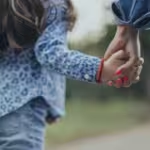We recently consulted with Dr. Janja Lalich, a world-recognized expert in cults and coercion, about how cults can harm their youngest members — and the roles their parents and other adults in their lives often play in keeping them in abusive systems of control. Among Dr. Lalich’s insights:
My book, Take Back Your Life: Recovering from Cults and Abusive Relationships,1 includes a section on “Families and Children in Cults,” with chapters on “Born and Raised in a Cult” and “Child Abuse in Cults,” as well as personal accounts. These excerpts detail salient points:
“Children are the least powerful and most helpless cult members. At best, they become loyal members, dependent on the group’s attitudes toward parenting, education, medical care, and discipline. At worst, they become the weakest pawns and victims of the cult, used as tools of recruitment, indoctrination, and control, often suffering neglect and physical and/or sexual abuse. Typically children do not have to be converted to the cult’s belief system because their induction into the social system begins so early. The cult world may be all they have ever known…. The outside world is firmly delineated and interpreted according to the cult’s worldview.” (p. 253)
“As the family becomes invested in the cult’s belief system and social system, family members become increasingly subservient, childlike, and dependent on the group or leader. By giving up their self-determination, parents can no longer maintain their family as an independent unit, and their model of family life becomes distorted and confused. By default or intention, children more or less become the property of the group or leader.” (p. 253)
“Sometimes serious or even fatal consequences result from idiosyncratic beliefs about medical, dental, or nutritional care; education; upbringing and socialization; or intimacy and sexual roles. Even if a group doesn’t live communally, cult leaders tend to exert their influence and control into members’ homes and families. Nearly everyone becomes infected with the leader’s obsessions, bizarre beliefs, and need for secrecy. And children particularly become part of the cult-created family disorder.” (p. 255)
“Cults differ from other groups with religious, philosophical, or cultural beliefs and norms. One major difference is that cults impose an us-versus-them mentality that is characterized by isolationism, elitism, secrecy, and a fear of outsiders that can border on paranoia. This places a heavy burden on children interacting with the ‘evil’ outside world…. Because they are often forbidden to talk with outsiders [about their life in the cult], …these prohibitions reinforce the isolation, distrust, and fear these children feel.” (p. 257)
Deleterious effects on children growing up in coercive, controlled environments
For one of my research projects, I interviewed 65 individuals either born or raised in a cult. It was the first in-depth research of its kind. Based on the data from those interviews, Escaping Utopia: Growing Up in a Cult, Getting Out, and Starting Over was published in 2017 by Routledge/Taylor & Francis. The data from that research — gleaned from subjects who lived in 39 different groups in more than a dozen countries and locations — highlighted the deleterious effects on children growing up in such coercive and controlled environments.
While in the group as children, half were either home-schooled, attended group-run schools, or had no schooling whatsoever. The rest attended public or non-group-run private school, but typically they were not allowed to socialize with other children not in the group. For this and other reasons (such as strange dress, obvious devotion to some type of leader, odd language, distant behavior), these children were ridiculed (even by teachers at times) and often ostracized by other children. There is a plethora of skills a young person typically learns as they go through school and life, but those opportunities are cut off for them.
Upon leaving the group, almost to a person, these individuals experienced extreme confusion, depression, a sense of loss, anxiety, and fear, stemming from the years of indoctrination that the cult way was the only way. They also experienced extreme culture shock, for most of them had been living a very confined and isolated existence. Nevertheless, a striking note was that many remarked that what surprised them most when they left the cult was how nice everyone was in the “outside world.” This is not what they were expecting, having been ingrained with the idea that everything outside the cult was said to be evil, corrupt, and life-threatening.
Another important observation is that no matter how bad things got or how much these individuals suffered while trying to build a new life for themselves, every single person (except one) said they would never go back and never thought about going back even in their darkest moments. For them, the most painful moments in the outside world were better than life in the cult.
Many suffered severe post-traumatic stress, which often went undiagnosed for years. Many floundered, moved around a lot, worked odd jobs, and were taken advantage of again because of their lack of social skills and healthy coping mechanisms, thus rendering them vulnerable once again.
Other peer-reviewed research on cult survivors corroborates
Another academic and peer-reviewed study investigated “cultic childhood experiences and their long-term effects on the individual development and the further lives of those affected. The findings indicate that growing up in a family belonging to a cult is often associated with serious restrictions, burdens and even traumatization. Later in life, this may lead to the development of self-esteem problems, mental disorders, and difficulties in intimate relationships …
Main categories identified were:
- burdensome experiences in childhood and adolescence;
- suppression of personal needs;
- the cult’s approach to sexuality and sexual education;
- the impact on personality development and mental health;
- impaired familial relationships; and
- problems regarding close relationships and sexuality.
The most important and alarming result of the study is that growing up in a cult correlates with numerous negative childhood experiences and can have a very lasting and unfavorable effect on the lives of those affected.”2
1 Lalich, J. Take Back Your Life: Recovering from Cults and Abusive Relationships, 3rd ed. (Walnut Creek, CA: Lalich Center on Cults and Coercion, 2023).
2 Kern, C. & Jungbauer, J. “Long-term effects of a cult childhood on attachment, intimacy, and close relationships: Results of an in-depth interview study.” Clinical Social Work Journal, 2020, https://doi.org/10.1007/s10615-020-00773-w.





